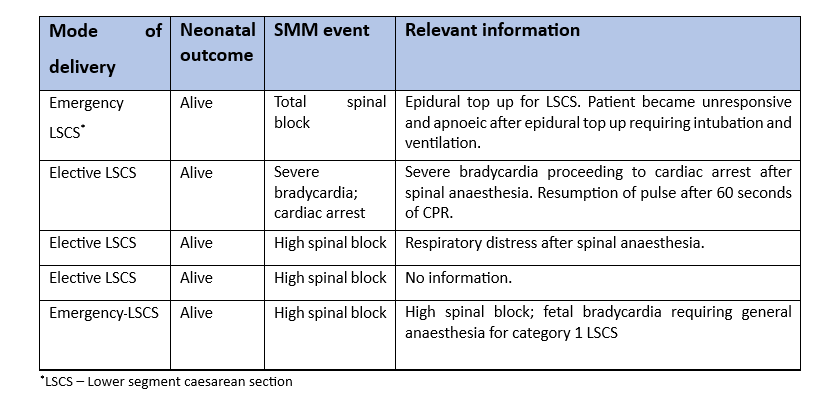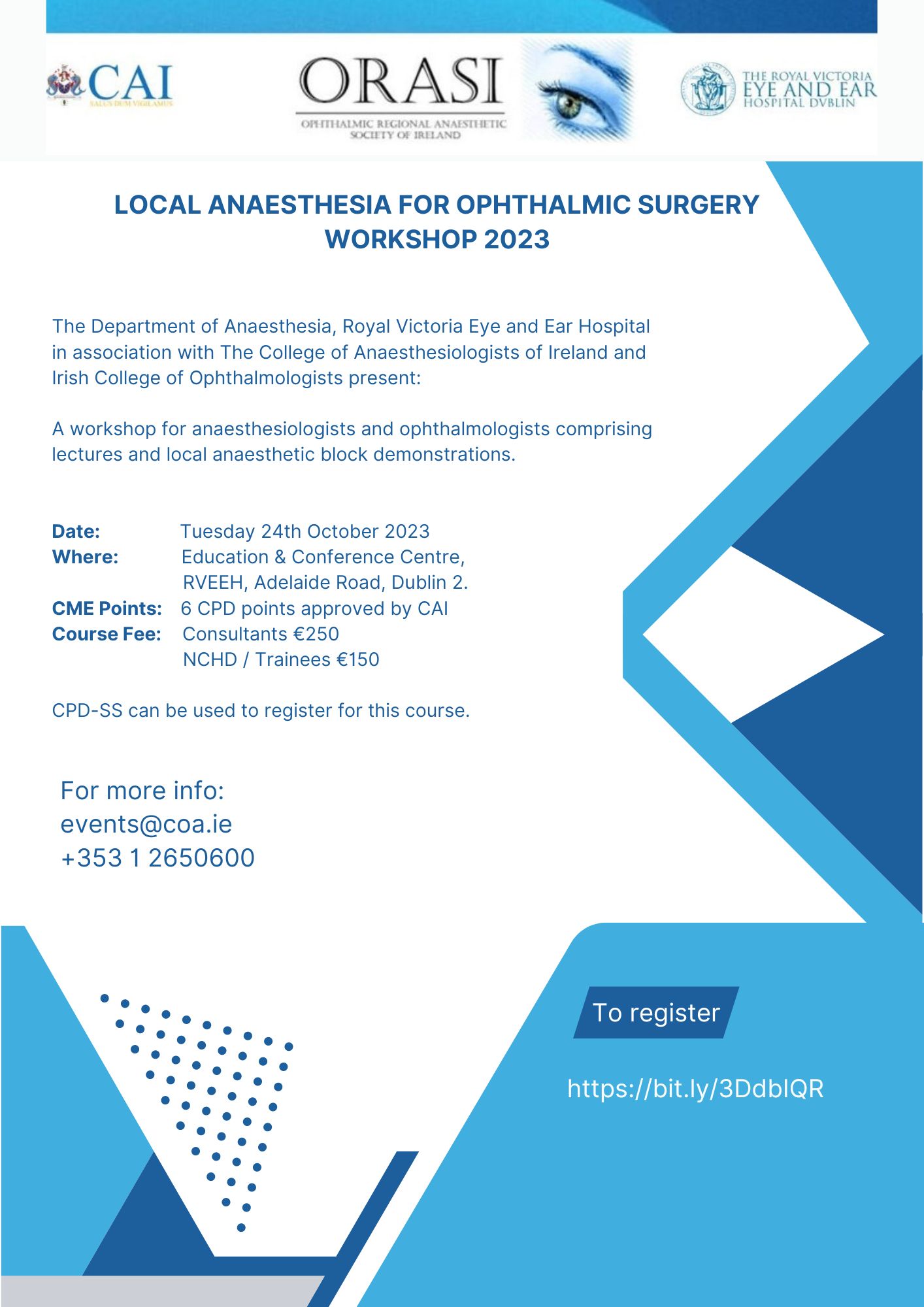Perils and Pitfalls of Obstetric Neuraxial Anaesthesia
Colleen Harnett1, Terry Tan2 1Fellow in High Risk Obstetric Anaesthesia, and Quality & Patient Safety, Coombe Hospital. 2Consultant Anaesthesiologist, Coombe Hospital Introduction The National Perinatal Epidemiology Centre (NPEC) annual report on Severe Maternal Morbidity (SMM) 2021 identified 5 cases requiring ICU/CCU admission categorised under the term “anaesthetic complication” (Leitao et al., 2022). All 5 cases were related to neuraxial anaesthesia for caesarean section. There were 21,523 caesarean sections carried out in Ireland in 2021 giving an SMM incidence of 1:500,000 (0.0002%) due to anaesthesia complications. Although these incidents are extremely rare, it can be
Training Posts for the National Training Programme in Intensive Care Medicine: Applications EXTENDED until Fri September 8th.
Clinical Fellowship (Year One) in Intensive Care Medicine & Advanced Clinical Fellow (Year Two) Post CSCST posts in Intensive Care Medicine Posts commencing July 2024: Clinical Fellowship (Year One) in Intensive Care Medicine applicants must: Have completed CSCST in base special Or Be eligible for a recognised year out of programme from base specialty (RCPI/RCSI/EM). 2. Advanced Clinical Fellowship (Year 2 ICM Training) applicants must: Have achieved CSCST or entry onto the Medical Council Specialist Register in base specialty by commencement of pos Have completed one year of JFICMI accredited intensive care medicine
Local Anaesthesia for Ophthalmic Surgery Workshop 2023
Event: Local Anaesthesia for Ophthalmic Surgery (14th Live Demonstration Block Course) The Department of Anaesthesia, Royal Victoria Eye and Ear Hospital in association with The College of Anaesthesiologists of Ireland and Irish College of Ophthalmologists present: A workshop for anaesthesiologists and ophthalmologists comprising lectures and local anaesthetic block demonstrations. Date: Tuesday 24th October 2023 Where: Education & Conference Centre, Royal Victoria Eye and Ear Hospital, Adelaide Road, Dublin 2. CME Points: 6 CPD points approved by The College of Anaesthesiologists of Ireland. Programme: you can see the programme Here. Course Fee: Consultants €250; NCHDs and Trainees €150 Topics include: –
A SURVEY ON ‘POINT-OF-CARE ULTRASOUND (POCUS) IN IRELAND’
This survey is aimed at healthcare professionals (outside of the typical radiology setting) using, seeking to use, contemplating using, reluctant to use or wanting to know more about point-of-care ultrasound. Your responses are useful to us whether you use or do not use ultrasound. The aim of the study is to establish the scope of POCUS use in Ireland. The study aims to find out the prevalence of POCUS use in Ireland, the clinical applications of POCUS as well as educational and accreditation opportunities available to POCUS users. You can take the



